British-raised Phil Andrews says he has learned from his mother’s criminal conviction for fraud to create an open and transparent organisation
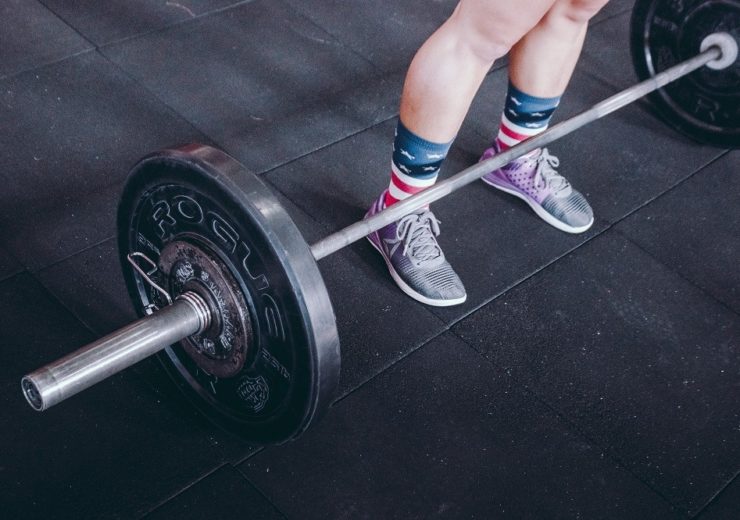
The USA Weightlifting team will hope to achieve its best results at an Olympics since 1960 when it competes at Tokyo 2020 (Credit: Unsplash/Victor Freitas)
As the CEO of USA Weightlifting, Phil Andrews has a medal target for the Tokyo Olympic Games in 2020 – but he must also balance finances as he bids for success. One of the youngest leaders in sport speaks to Dan Robinson about his role.
Next July, the world’s strongest men and women will take to the floor at the Tokyo International Forum to determine who can lift the heaviest barbell.
Their loved ones will be among the Olympic crowd, mentally going through the lifting routines as four years of hard work reaches its crescendo – but by Phil Andrews’ reckoning, there won’t be anyone bearing the star-spangled banner on their singlets who’s feeling on edge as much as the USA Weightlifting CEO.
“It will probably be me who’s most nervous, followed by the personal coaches because they shoulder a lot of it for the athletes, then the parents, husbands and wives,” says Canadian-born, British-raised Andrews.
“The athletes get nervous but they’re usually down the list because the people around them absorb the nerves for them.”
Tokyo 2020 promises to be the biggest moment in the career of someone who became the youngest chief executive of a United States Olympic & Paralympic Committee (USOPC) sport when he assumed his position in 2015, aged 29.
Still one of the youngest bosses within the entire Olympic movement at 33, he’s charged with winning the first men’s medal for Team USA in 36 years at a Games, with a stated aim to take home three across both genders – and ideally a gold among them.
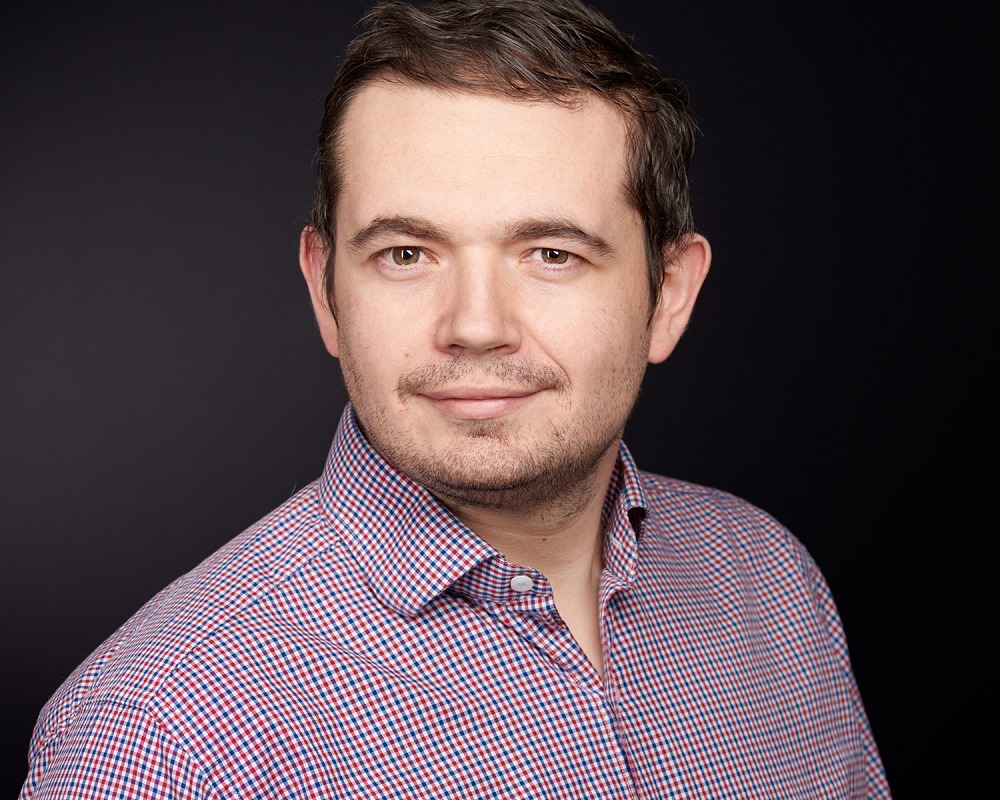
Doing so would make Tokyo the most successful Olympics for his team since 1960, when six Americans stood on the podium.
“We won one medal in Rio, which in the US doesn’t generate significant interest in the sport,” Andrews adds. “But if we can get two or three, it starts to get interesting.
“So I’m expecting to be extremely busy and probably won’t see the inside of a pillow much during those two weeks in Tokyo.
“The less sleep I have, the better our athletes have done.”
USA Weightlifting CEO Phil Andrews’ career background
Colorado-based Andrews, speaking to NS Business from Florida after a trip to Buenos Aires, is no stranger to travel.
After relocating from Canada to the UK when he was very young, he moved around various parts of the country, including a stay at boarding school.
His arrival in sport arrived early in his career when he was appointed as one of the founding board members of the British Universities Ice Hockey Association, which helped him secure marketing roles at professional ice hockey clubs in Basingstoke and Coventry.
A move into the corporate world at student accommodation provider Unite Group broadened his business perspective and taught him about communication between head office and remote bases in regional cities where he oversaw sales.
But it was while working for the University of East London (UEL) – which has a campus next to the Olympic Park that staged London 2012 – when the move into elite sport begun.
Overseeing activities outside education that brought in income for the university – including conferences, events and summer residences – he worked closely with Team USA when its facilities became home to the athletes’ high performance centre for nine weeks during the 2012 Games.
It led him to meet his wife Stacey, whose job was to kit out the athletes with sponsored clothing throughout the tournament, and five months after the Olympic torch was extinguished they decided to move to the US.
“I sat down with a couple of people to see who needed help and the answer was the weightlifting team,” he recalls.
“It had enormous potential, particularly as CrossFit was taking off at that time. I’m not a weightlifter myself so it wasn’t a passionate choice to go there, but I’ve become more passionate about it over time.”
Phil Andrews’ role as USA Weightlifting CEO
Initially joining as director of events and programmes in January 2013, he was appointed CEO and general secretary in April 2016 after a four-month interim stint.
He oversees a team of 14 who are mainly based in Colorado Springs, home of USOPC, but will travel around the country and abroad throughout the year.
While USA Weightlifting reports under USOPC, it’s a separate organisation that’s responsible for its own finances.
Olympic sports in the US differ to countries like Britain, which uses the National Lottery to cover more than half the cost of funding in many disciplines, as they receive almost no public money.
It means their organisations have to be more business-focused than in other nations and find ways to maximise income from sponsorship, members and broadcasting rights.
Andrews – who calls the UK’s move to separate the TV rights for the Olympics and Paralympics in 2012 “one of the smartest decisions I’ve ever seen” – calls the culture of open communication and transparency he has created his biggest success to date.
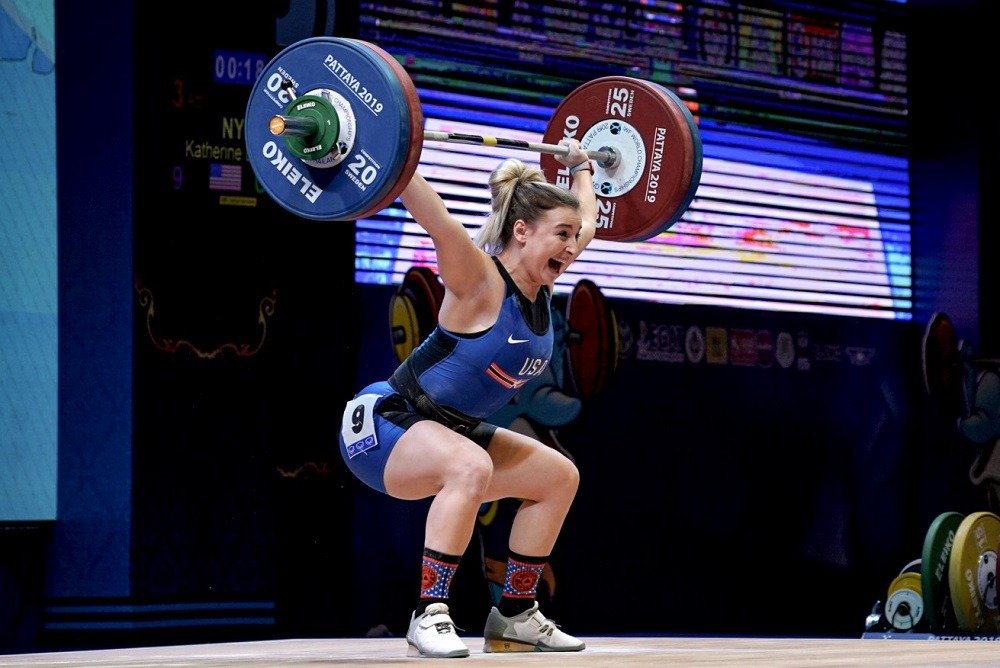
He says: “The biggest thing I do is keep the communication lines flowing in my team. I’m not afraid to try new things, which means you have to communicate openly, but I’m also not afraid to back away quickly.
“The biggest thing I’ve changed since 2016 is introducing transparency with our members and staff.
“By involving our members in feedback, it means they have some buy-in into what we do and we can foresee any problems before they happen.
“That’s underpinned everything we’ve done. It’s taken a lot of work to turn around some opinions about USA Weightlifting but we’ve tried to make our objectives clear and explain why decisions are made to achieve those.
“Our members are repeat and loyal customers. If you think about it from a business – rather than governing body – perspective, it’s your job to keep those individuals satisfied, otherwise you’re never going to grow.”
How being the son of a criminal mother shaped Phil Andrews’ leadership style
His determination to be transparent stems from his mum being jailed for 10 months for fraud, having been convicted of stealing an identity to claim disability allowance.
It affected their relationship and, while they are still in touch despite her being unable to travel to the US on account of her criminal record, Andrews isn’t afraid to broach the subject.
He said at the time: “Unfortunately, while I empathise that there are, potentially, clean athletes in these nations who will not be able to participate in the Olympic Games, World Championships or other events because of the offences of double-digit amounts of doping offences within the federation, then these individuals should be looking towards those who committed the offence for compensation – not to the people holding them accountable.
“When I had a family member in prison, I looked to them for accountability – I did not call for a change to Her Majesty’s home office.”
Reflecting on his comments now, he says: “My mum’s conviction has affected me as I’ve gone through life in terms of how people judge my character through her actions.
“Every time it comes up in a conversation, I have to prove that my character is different to my mother’s character.
“You have to be open and put everything on the table. One thing I’ve learned as a leader is that it’s okay to put your hand in the air and say ‘I screwed up’.
“Clearly you can’t do that every week because then you’d have a problem but a bit of humility and empathy is a huge part of what we do. I’ve never met the perfect leader and I don’t think I ever will.”
Luckily for Andrews – who is also keen to stress how American weightlifters are rigidly tested for drugs in a sport that International Olympic Committee president Thomas Bach said had a “massive doping problem” – he can point to raw numbers as evidence of a successful leadership approach.
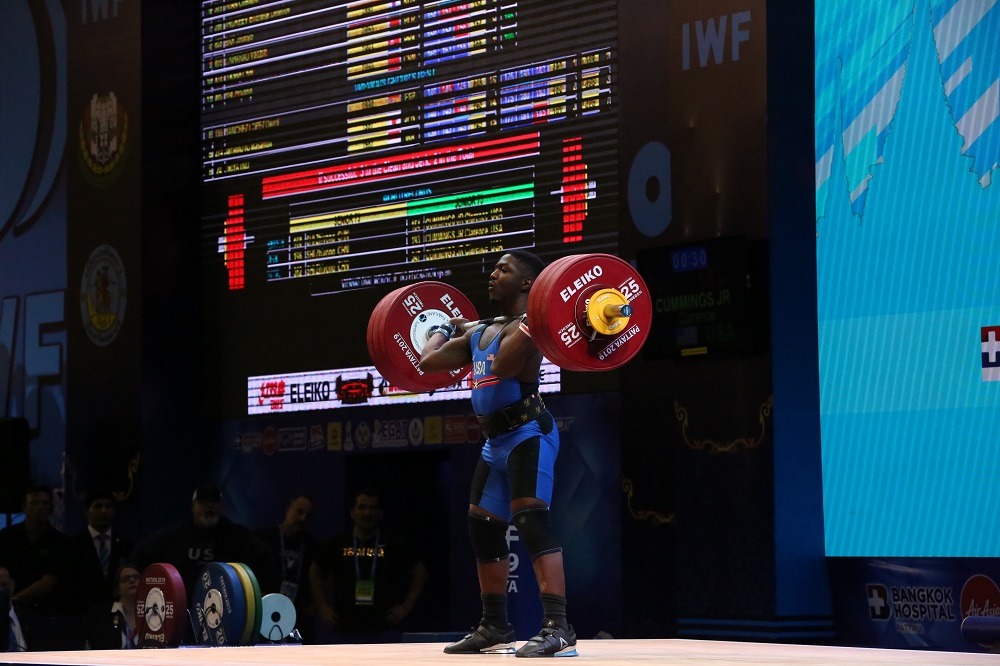
The membership base has grown from 9,000 to 30,000 people, the retention rate for those who stay more than a year jumped by 10% to 73%, and revenue increased from $4.7m in 2015 to $7m at the end of 2017.
“We used to be heavily reliant on our coaching education business for making money but we’ve done a few things, including creating pay-a-you-go and monthly memberships that are a bit like a Netflix-style model so people don’t just have to pay annually,” explains Andrews
“We’ve also taken away the need to wear a singlet in the first year. It’s very tight-fitting and newcomers can often be very uncomfortable wearing it so it can scare them off.
“We’ve also created an outreach department that’s responsible for growing our sport in schools, set up an International Try Weightlifting Day and have had a big drive towards inclusivity by becoming the first national body to celebrate Pride.
“Our women have been pushed in particular because we have one of the best women’s teams in the world right now. If you’re looking to attract women, you need to put them front and centre, and 50.3% of our members are now women.”
Financial challenges of being the USA Weightlifting CEO
As the national governing body for the sport, USA Weightlifting has two key, but competing, priorities.
While one is to grow the membership base, the other is to win medals at international tournaments, something that focuses minds during Olympic years like 2020.
Andrews explains: “I have to decide how the middle of the pyramid looks between the top and bottom targets,” he says.
“A lot of sports have a narrow window of opportunity to get media exposure and show what they’re really about so as we get closer to the Olympics, we’ll certainly concentrate our efforts on the top of the pyramid.”
Throughout the year, the USA Weightlifting CEO wants to tell the stories of how the women’s team has jumped from 24th to third in the world rankings, as well as any “heroes” across the entire team who win medals.
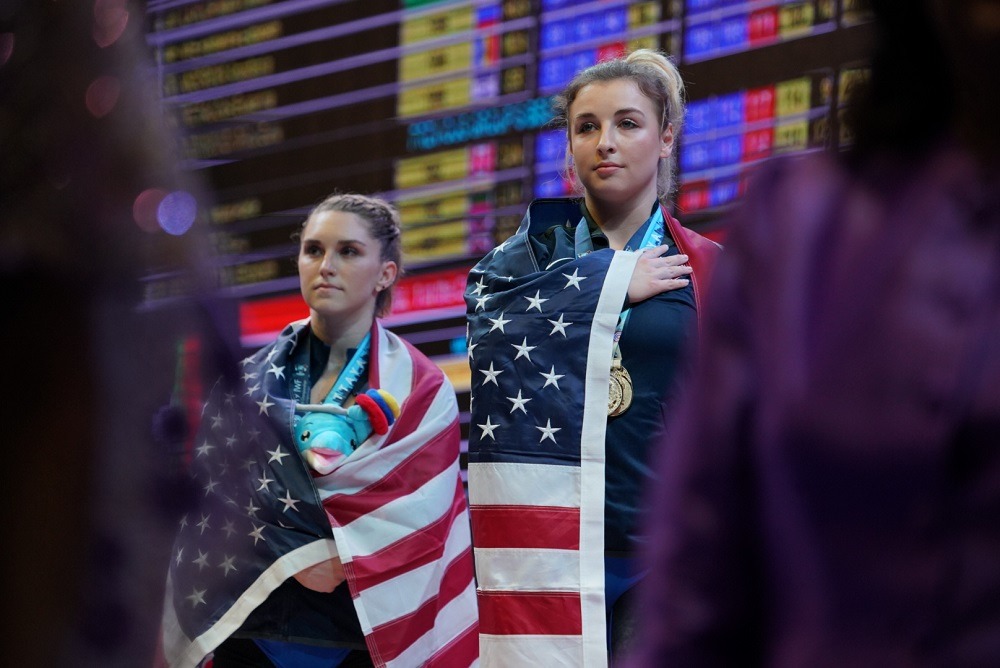
“To do that, we have to concentrate on giving our athletes at the Olympics everything they could need to succeed and eradicate the significant medal drought we have for the men’s in particular,” says Andrews.
“We want to use that to drive people into our 1,200 weightlifting clubs, which in turn makes it more likely that we’ll find a talented athlete.”
The promise to give athletes “everything they could need” comes with a significant cost, particularly in a city ranked as the second most expensive in the world by the 2019 Mercer Cost of Living Survey.
Each of the USA Weightlifting athletes – there were four at Rio 2016, but next year’s have still to qualify – will have access to their own training centre and personal coaches in downtown Tokyo, while they will be given food, accommodation and travel.
Overall, the 2020 Olympics will cost the organisation at least $500,000 – rising towards $650,000 if bonuses are paid out for medals.
About 80% of the minimum total has already been fundraised through events and private donations, including from Andrews, but it puts the USA Weightlifting CEO in a difficult position should the team overachieve.
“If you overspend in one area, you have to find other ways to account for it, so sometimes success actually costs dollars,” he says.
“When you create an objective programme, you’ll tell people if they achieve something, they receive an award.
“If they go and actually do better than we projected as a team or individual then you end up in an interesting position where you’re actually spending significant sums of money for ironically fulfilling our mission statement.
“So our expenses for our athletes has significantly increased, which is a great thing because as spending money goes, that’s where you want to see it increase. But from a business perspective, you have to think ‘I need to go and find that money from somewhere’.”
It’s why he’ll be wearing both his financial hat and Team USA jacket at the Tokyo International Forum.
In between cheering on athletes and making mental calculations, Andrews will liaise with families, host partners and sponsors, and manage media enquiries with another eye cast towards attracting new members by generating more interest in the sport.
And despite the anticipated lack of sleep, he wouldn’t wish to be anywhere else in the world during those two weeks spanning July and August.
“It’s part of the job but it’s an exciting part of the job,” he adds. “If you think of the average business, most people in my position don’t get to go to the Olympics and have the levels of both stress and excitement that I feel as we aim to prove it’s possible to win medals.
“It’s a very special thing and I’m really proud to match the business behind that.”


